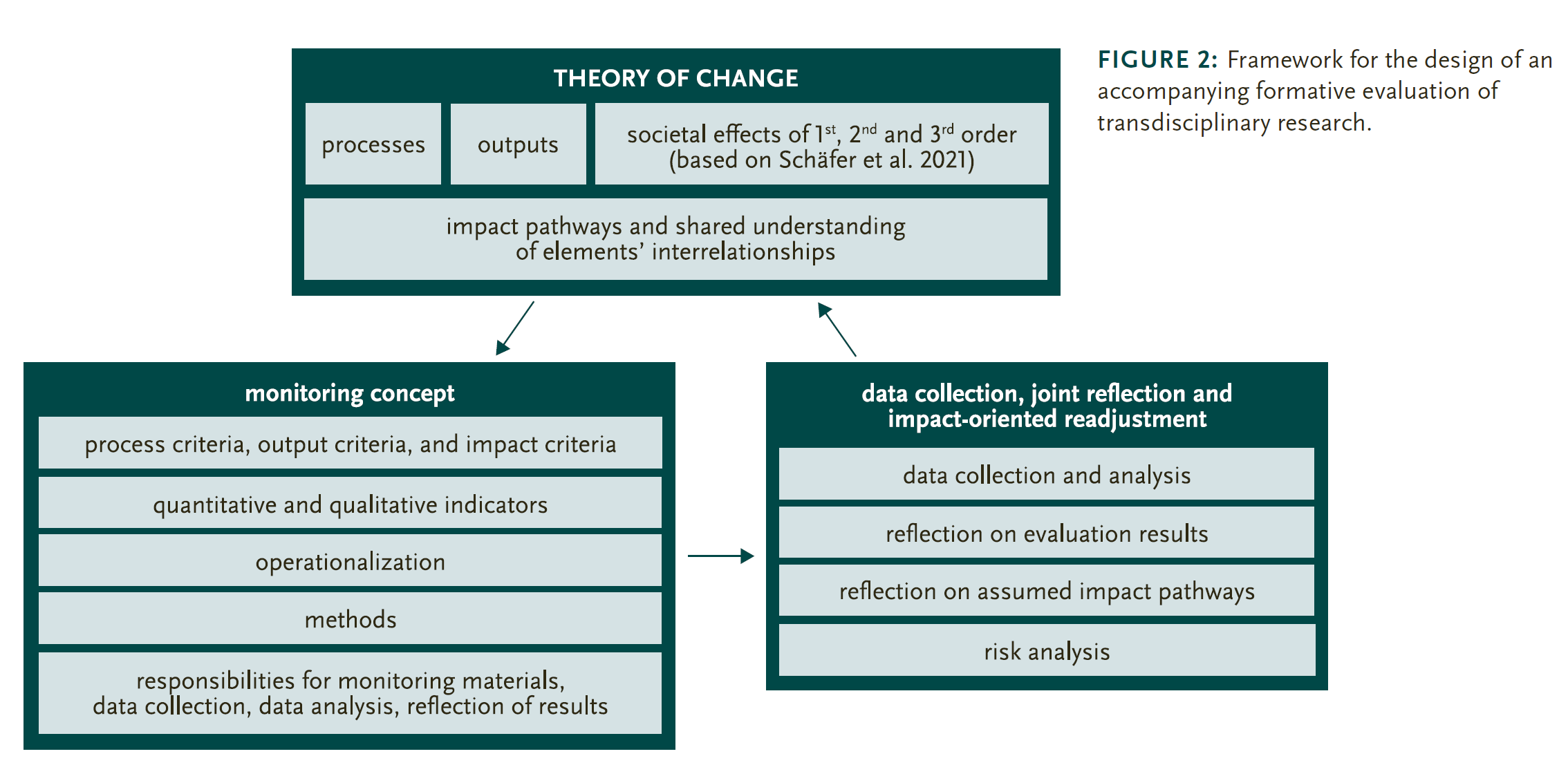In the first funding phase of the tdAcademy, Josefa Kny and Martina Schäfer developed the concept of “impact workshops“. This comprehensive workshop format allows transdisciplinary research projects to collectively find a shared vision for the project, conduct a preliminary stakeholder analysis, compile the planned activities, interactions, and outputs of the project, and particularly reflect on the intended societal effects in a moderated process. The impact pathways developed in the workshop help projects identify gaps in impact logic and potentially plan missing activities.
Building on the impact workshops, Jasmin Wiefek, Emilia Nagy, and Martina Schäfer developed an approach for the formative evaluation of transdisciplinary research. In their project-accompanying approach, conducting an impact workshop and thus developing a Theory of Change form the starting point of the evaluation. Based on these results, the evaluators, together with the project team, develop a monitoring concept that includes indicators related to project-specific outputs and effects, as well as indicators capturing the quality of the transdisciplinary process. The monitoring concept provides the structure for the subsequent data collection. These data collection processes are ongoing, and the results of the data analyses are regularly discussed within the project team. These reflection processes, along with the regular repetition of the impact workshops, continuously test the robustness of the developed impact pathways and may lead to adjustments to the project-specific Theory of Change.

Source: Wiefek et al. 2024,100, Figure 2
The evaluation concept is presented in a Design Report published in the GAIA Special Issue "Impacts of Real-world Labs in Sustainability Transformations," released in early 2024. The application of the approach in practice is explained through two examples from real-world lab research. The publication is available for open access:
Wiefek, Jasmin; Nagy, Emilia; Schäfer, Martina (2024): Formative evaluation of transdisciplinary research for systematic impact orientation in real-world laboratories. GAIA - Ecological Perspectives for Science and Society, 33(S1), 94 – 101. doi.org/10.14512/gaia.33.S1.14
